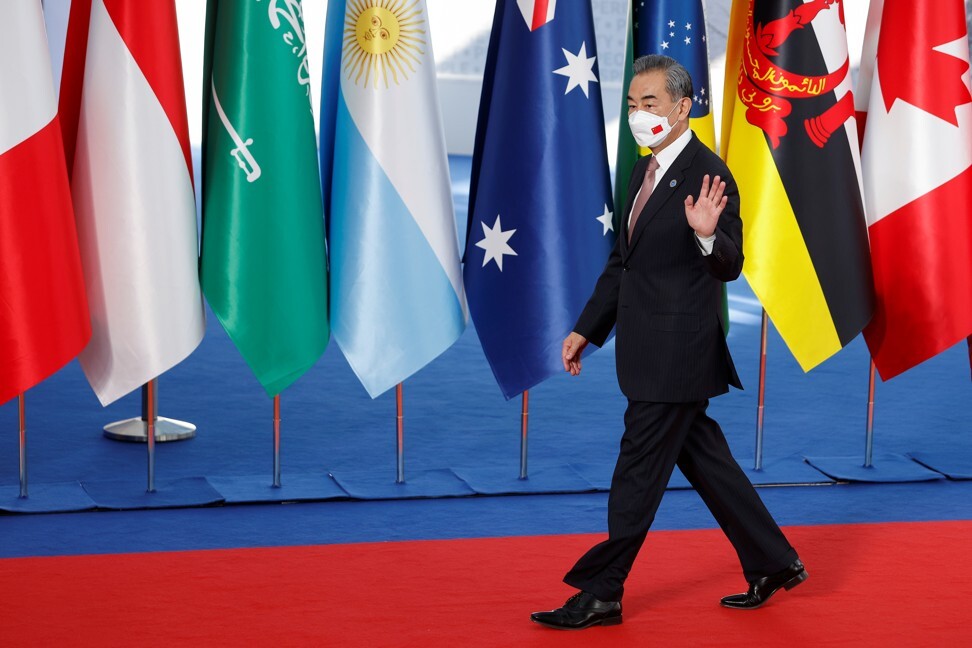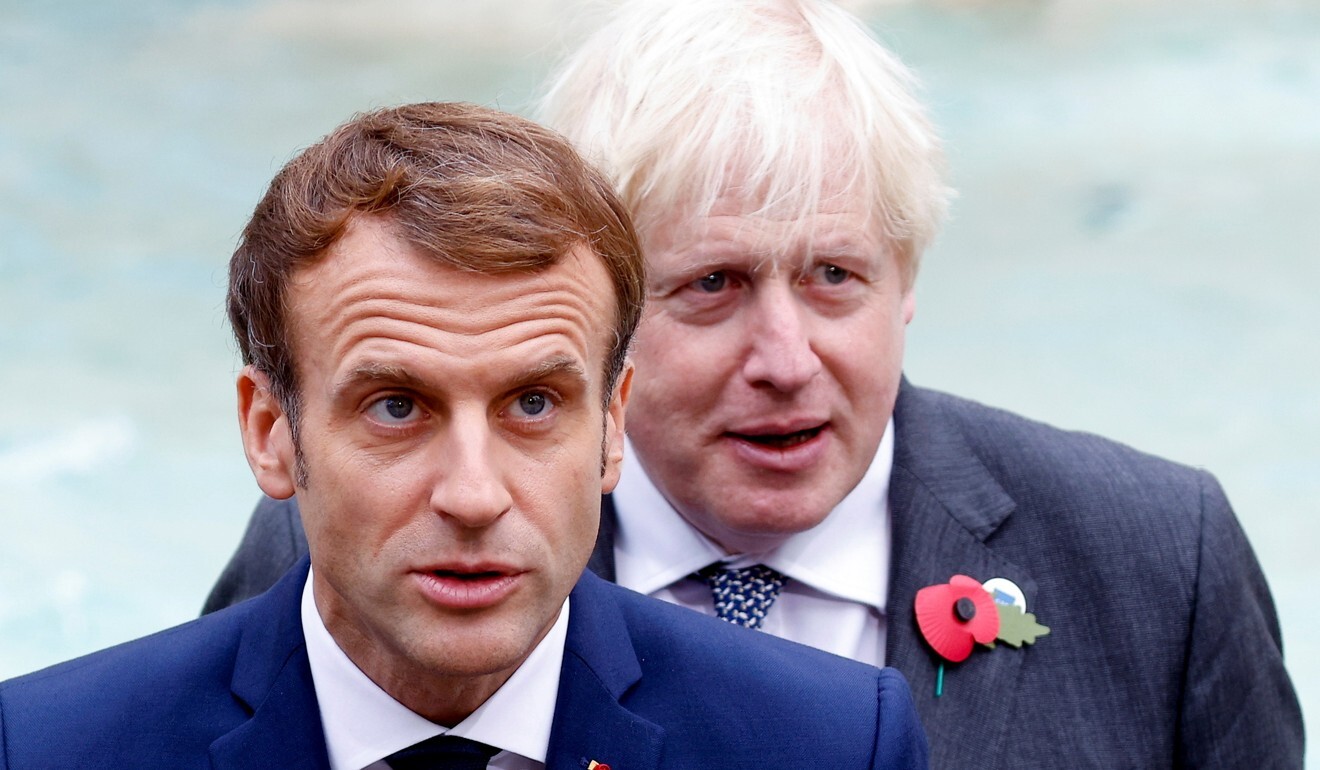
Biden ‘disappointed’ by Xi, Putin absences at G20 as leaders promise effort to limit global temperature rises, but fail to offer firm commitments
- Final statement from Rome summit recognises that the 1.5C target will have a much lower impact than 2C but does not go beyond 2016 Paris Agreement goals
- The talks concluded with US President Joe Biden calling Chinese and Russian contributions ‘disappointing’
He added: “You’re going to see we’ve made significant progress, and more has to be done, but it’s going to require us to continue to focus on what China’s not doing, what Russia is not doing and what Saudi Arabia is not doing.”
“Keeping 1.5C within reach will require meaningful and effective actions and commitment by all countries, taking into account different approaches, through the development of clear national pathways that align long-term ambition with short and medium-term goals, and with international cooperation and support, including finance and technology, sustainable and responsible consumption and production as critical enablers, in the context of sustainable development,” it read.
However, there appeared to be few new commitments on top of the Paris goals, adopted in 2015. The 1.5C target had already been contained in the agreement, while rich nations were unable to make a breakthrough on commitments to provide US$100 billion in climate financing to developing countries.
Rather than agreeing to net emissions neutrality by 2050, as had been targeted by some Western countries, leaders agreed to a compromise text “acknowledging the key relevance of achieving global net zero greenhouse gas emissions or carbon neutrality by or around mid-century”.

Canadian Prime Minister Justin Trudeau said there was “no question that Canada along with a number of other countries” wanted stronger commitments towards achieving net zero by 2050.
Trudeau also said he had thanked Biden for the “hard work” in getting the two Canadians Michael Spavor and Michael Kovrig back from China. He added that he had “spent a lot of time” thanking those in attendance who had raised their case and spoken out against “the issue of coercive, arbitrary detention” in China.
On the sidelines of the G20, Russian Foreign Minister Sergei Lavrov scolded Italian journalists who had reported details of a draft communique committing to a 2050 target, saying Russia’s target has always been 2060.
G20 leaders endorse global minimum corporate tax deal
“We are pressing to get an agreement to make sure that countries don’t finance coal projects internationally,” he said. “We have to actually do what we say and make sure that others that have not made the necessary commitments – including China, now the world’s largest emitter – actually step up and do the right thing.”
The communique said the G20 will provide renewable energy support to “enable those countries that commit to phasing out investment in new unabated coal power generation capacity to do so as soon as possible”.
“We commit to mobilise international public and private finance to support green, inclusive and sustainable energy development and we will put an end to the provision of international public finance for new unabated coal power generation abroad by the end of 2021,” it read.

Nick Mabey, CEO of energy think tank E3G, said that because the G20 contains the world’s largest polluters, it was “never going to deliver the strongest climate leadership”.
“We expect the G20 to fall short on agreeing to stop building coal and fossil infrastructure, but believe more countries will step up with coal commitments at COP26,” Mabey said.
According to the communique, China succeeded in including a paragraph on the Beijing Winter Olympics next year.
“We look ahead to the Beijing Winter Olympics and Paralympics 2022, as opportunities for competition for athletes from around the world, which serves as a symbol of humanity’s resilience,” read the document viewed by the Post.
WHO chief calls on G20 nations to end coronavirus vaccination crisis
Politico has previously reported that Canada and the US were resisting China’s insistence that the communique refer to the Games “as a symbol of humanity’s resilience and global unity in overcoming Covid-19“.
Western governments have, over the course of the weekend, stepped up their rhetoric towards China and India, considered laggards on climate targets, urging the giant Asian economies to bring forward their targets on peak emissions and to make definite commitments on the use of coal.
China submitted a blueprint for its climate ambitions last week in the run-up to the diplomatic double-header, but it did not advance on President Xi Jinping’s existing pledge to achieve net-zero emissions by 2060.

Australia has also refused to budge on the use of coal. India, meanwhile, has attempted to steer the conversation towards “climate justice”, rejecting demands to make concrete pledges on net zero this week.
China is the world’s largest producer of fossil fuel CO2 emissions, pumping out 28 per cent of the world’s total in 2019, compared with 14.5 per cent for second-placed United States and 7 per cent for India in third.
Will Xi and Putin’s absence make a difference at G20 and climate summits?
“Developed countries should set an example on the issue of emission reduction, fully accommodate the special difficulties and concerns of developing countries,” he said
In an interview with the Financial Times on Sunday, French President Emmanuel Macron called on the G20 to “go right through to the eradication of all international financing of coal-fired power plants”.
He also urged China to bring forward its peak emissions date from 2030 to 2025, echoing demands made by British Prime Minister Boris Johnson.
“So as not to lose more time, we have to do as much as is absolutely possible in terms of financing, and encourage the US administration so that they can convince Congress to front-load its financing,” Macron told the FT.

03:08
China sentences Canadian businessman Michael Spavor to 11 years for spying
As leaders broke for dinner at the Quirinal Palace, deadlocked talks continued long into the night at the Esposizione Universale Romana, the summit venue, built in the 1930s as a showcase of Fascist architecture by Benito Mussolini.
Additional reporting by Robert Delaney

